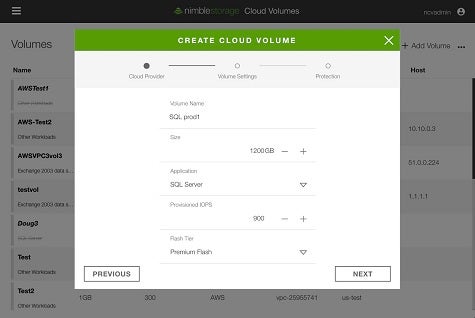Most IT organizations in an ideal world would have the option of invoking low-cost compute in the cloud while still retaining complete control of their data. With that goal in mind, Nimble Storage today unveiled Nimble Cloud Volumes, a cloud service through which IT organizations can store data on a cloud managed by Nimble Storage that in turn can be connected over a private network to either Amazon Web Services (AWS) or Microsoft Azure cloud.
Gavin Cohen, vice president of product and solutions marketing at Nimble Storage, says the new service allows IT organizations to move data into Nimble Storage data centers located in the same geographic proximity as a specific region of an AWS or Azure cloud.
Cohen says the specific technical challenge that Nimble Storage is trying to address is to provide via the cloud enough block storage I/O to process latency sensitive applications. IT organizations, says Cohen, have been reluctant to move these applications into the cloud because the storage systems provided by cloud service providers are not fast enough. Most of those cloud service providers, notes Cohen, are trying to support applications using an object storage system versus block storage that is already widely used within database applications across the enterprise.
Cohen also notes the drives that cloud service providers generally use are not durable enough to meet the needs of enterprise IT organizations. In addition, Cohen says cloud service providers that store data don’t typically provide their customers with a lot of visibility when it comes to troubleshooting applications.
Cohen adds that without control over their data, it becomes a lot simpler for the costs of storing data on a public cloud to suddenly balloon. In fact, Nimble Storage systems, says Cohen, make extensive use of predictive analytics to prevent the problem from occurring in the first place.
Finally, Cohen says IT organizations should be able to play one cloud service provider off another without their data getting locked into one cloud service versus another.
“IT organizations should be able to switch cloud service providers with no loss of data,” says Cohen.
Most IT organizations today think of hybrid clouds within the context of multiple server platforms being linked together to support a single application. The definition being applied by Nimble Storage is a more storage-centric approach to how hybrid clouds might be alternatively constructed.



